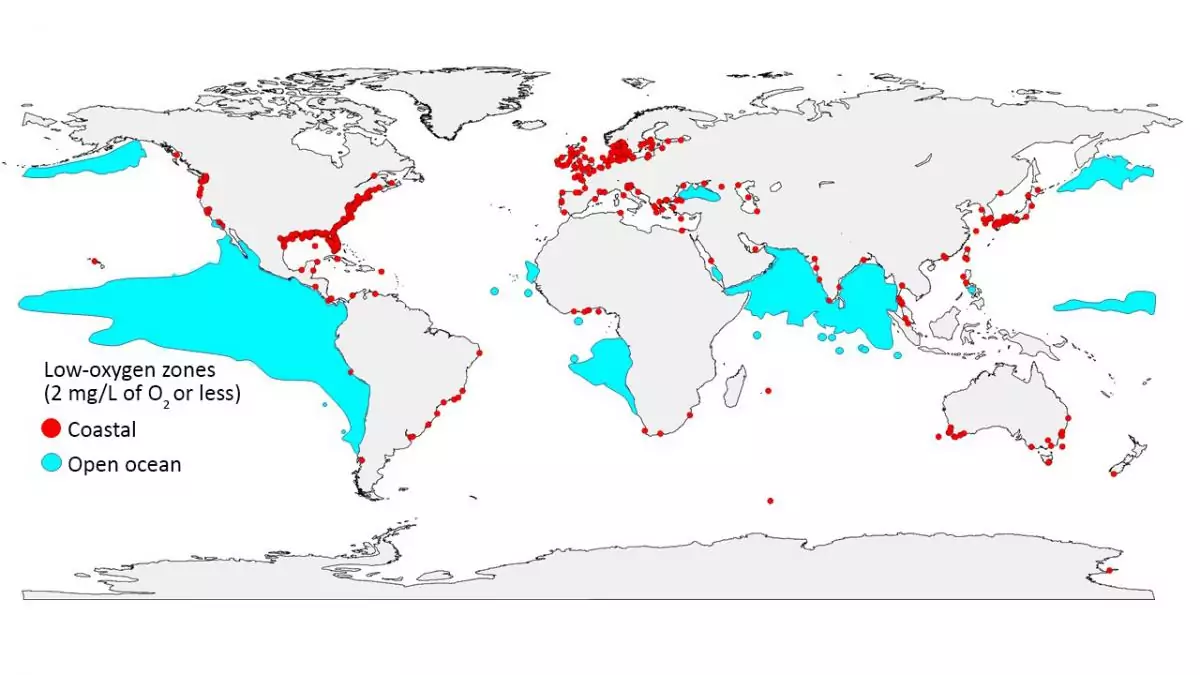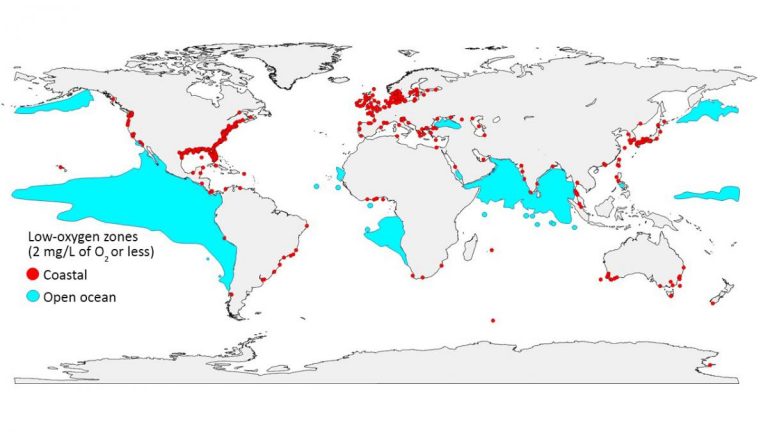The number of “dead zones”, areas of water in the open ocean that contain zero oxygen, have more than quadrupled in the past 50 years, according to a report just published by the US-based Smithsonian Environmental Research Centre in Science.

In coastal waters, low-oxygen sites have increased more than 10-fold since 1950, and the scientists say that they expect oxygen content to go on dropping in and outside these zones as Earth warms.
The decline can be halted only by reining in both climate change and nutrient pollution, according to the report.
“Oxygen is fundamental to life in the oceans,” says marine ecologist Denise Breitburg, lead author of the study. “The decline in ocean oxygen ranks among the most serious effects of human activities on the Earth’s environment.”
Also read:Divers, back SAS to clean up UK waters
The scientists work for GO2NE (Global Ocean Oxygen Network), which was created in 2016 by the UN’s Intergovernmental Oceanographic Commission. Their report is said to be the first to take such a sweeping look at dangers posed to the oceans, which contain half the world’s oxygen.
In dead zones such as in the Gulf of Mexico, oxygen levels have decreased to the point at which marine-life suffocates and dies.
As fish avoid such zones, their habitats shrink and they become more vulnerable to predators or fishing. Some animals can thrive in dead zones, but overall biodiversity falls.
Where smaller declines in oxygen content occur, animals’ growth can be stunted, their reproduction hindered and disease or death can result, say the authors.
Low oxygen can also trigger the release of dangerous chemicals such as nitrous oxide, a greenhouse gas up to 300 times more powerful than carbon dioxide, and toxic hydrogen sulphide.
Warming surface waters are making it harder for oxygen to reach the ocean interior and to be held there.
In coastal waters, excess nutrient pollution from land creates algal blooms that drain oxygen as they die and decompose.
The report also points out that when water warms its animals need more oxygen, and that coral reefs can waste away without enough of the life-giving gas.
The report calls for a three-pronged approach to tackling the problem – addressing climate change and nutrient pollution through reducing fossil-fuel emissions and better septic systems and sanitation; protecting vulnerable marine life by creating more marine-protected areas or species; and improving low-oxygen tracking worldwide, to make it possible to predict where future dead or low-oxygen zones will occur.
Divernet – The Biggest Online Resource for Scuba Divers
06-Jan-18

